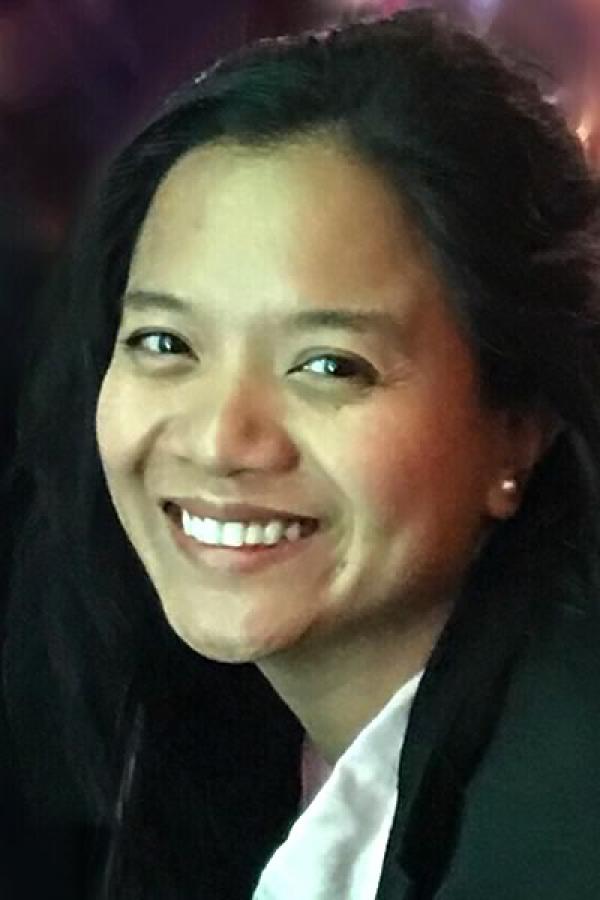Sasha Pimentel

Photo by Michael Topp
Bio
Sasha Pimentel is the author of two books of poetry: For Want of Water (2017, Beacon Press), winner of the National Poetry Series (selected by Gregory Pardlo), winner of the Helen C. Smith Award, and longlisted for the PEN/Open Book Award; and Insides She Swallowed (2010, West End Press), winner of the American Book Award. She has published poems and essays in the New York Times, PBS News Hour, ESPN, the American Poetry Review, New England Review, Literary Hub, and other literary publications.
Born in the Philippines and raised in the United States and Saudi Arabia, Pimentel is an associate professor in the Department of Creative Writing at the University of Texas at El Paso, on the border of Ciudad Juárez, Mexico. She is the 2018-2019 Picador Guest Professor in Literature at Universität Leipzig in Leipzig, Germany.
When I learned about the National Endowment for the Arts fellowship, I was in Germany for a visiting professorship, had found the words to a poem I’d been struggling to hear about volunteers in Brazil who hefted pails of stone and mud in silence after a landslide: who, in order to locate their neighbors, had softened the noises of their own bodies to hear who was moving from the unmarked earth beneath.
Weeks later, I was in Ukraine searching for a village lost to genocide. “No one now can really know where it was,” the guide said, where thousands of people had worked, eaten, and loved, acknowledging how almost wholly people try to efface another people’s having lived.
Boundaries—noise from silence, one person’s body from another’s—require a point of reference, a marker to say what is or isn’t. Because my home is on the Mexico-U.S. border, I grow ever more aware of the references we're using, have used, to separate ourselves, cage our bodies from each other. This isn't new, that historically and presently governments hurt each other, even their own, and their children.
But the NEA is a point of reference too. It is a marker of a nation who invests in its artists. And it's art which reaches out—to, and beyond, where divisive policies fail; art which lives the murkiness between scissions; art which searches to name what was, as much as what can be. This fellowship means for me that book which couldn’t be written if not for the NEA: not because a book wouldn’t have been written, but because it wouldn’t be written with such hope of communality, what pierces grief. That generosity and compassion too come from governance and citizenship, can define who we are: how we can listen for one another, try to find each other.
"For Want of Water"
an ant will drown himself, his body submerging
into ease, his mandibles, head, antennae, baptized. How lovely
to lose your senses to the cup of your want. A boy
drags his mother’s body across the desert, her fluids rising
to god in order to quench her skin. How divine
her body must have looked, clutched at the ankles, her
arms reaching out in exultation, her head stippled in rings
of sand and blood as he walked with her, slowly, her fallen
and moving shape the fork of a divining rod, her body shaking
with each of his steps, and for water, shaking to find
that deep and secret tributary. I have dreams of letting go
of water, of waking my lover to a bed of my urine
as my brother did to me, his thin limbs shaking to discover
the shame of his inside self. And what did we know that to have
an inside wet enough to free was luxury? The boy
walks with his mother—he is only thirteen—the age I learned
to stroke on the toilet the blood off my fingers, and he can
not cry, because to cry would mean the waste of his own
wetness, to cry would mean to stop, to think, to differentiate
the liquids moving down his face, to cry would mean
to cry, so he goes on, and—this is a common story, the boy
is not a boy now but every boy we have ever known—people
find him, they help him to lift his mother onto their hands,
their necks, they lift her to their own dark and desperate
dryness, and they make it, yes, when they make it over the border
to a mall parking lot, they lay her down, they fall with her
body as a clump of bodies behind a city
dumpster, and people make calls from behind windows, not
to the immigrants with the dying core, but to the police, who come
with their handcuffs and call her dead. No. To call
would be to give her life a name. Roundness to where there are
now only angles. To call would be to remember all
the other times that he has called for her, and the boy plugs his
ears, shakes his head, doesn’t know that he cannot physically
produce tears anymore—such thirst can rid us of these symbols—
only that now there are mouths around him calling other names
as men run and other men give chase, because how much do you need
to give up in order to stay? a boy? a mother? your land and inner
land? Nothing. Nothing can be given, and he will remember
nothing as he sits in a cell waiting for his sister to come to release
him from his cellular pain. He will only remember water, that want
for the clouds to let go their rain, and how seeing
them dropping, he kept pulling forward, their bodies steady towards that dark, uneven line.

